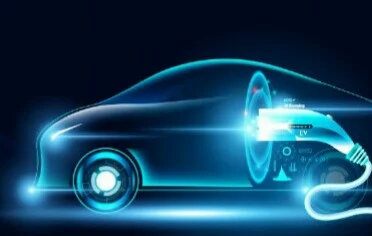Electric Vehicle
Introduction Electric Vehicles in the United Kingdom
The United Kingdom is on a mission to transform its transportation sector and reduce carbon emissions through the widespread adoption of electric vehicles (EVs).
With ambitious climate targets and a supportive policy framework, the UK is emerging as a global leader in the transition to electric mobility. In this article, we delve into the UK's journey towards electric , explore the driving factors behind its success, and discuss the environmental and economic benefits that EVs bring to the country.
Electric Vehicles in the United Kingdom
| Year | Key Event or Milestone | Impact |
|---|---|---|
| 2010 | Introduction of the Plug-in Car Grant | Provided financial incentives for the purchase of electric vehicles, boosting sales. |
| 2013 | Launch of the "Ultra Low Emission Vehicle (ULEV) Roadmap" | Set ambitious targets for electric vehicle adoption and outlined strategies for achieving them. |
| 2015 | Expansion of the charging infrastructure | Increased the availability of charging stations nationwide, making electric vehicle ownership more convenient. |
| 2017 | Introduction of the "Road Tax Exemption" | Exempted electric vehicles from road tax, further incentivizing their purchase. |
| 2019 | Announcement of plans to ban the sale of new gasoline and diesel cars by 2030 | Reinforced the UK's commitment to transitioning to electric vehicles. |
| 2020 | Launch of the "Electric Vehicle Infrastructure Strategy" | Focused on expanding the charging network, especially in rural areas. |
| 2021 | Introduction of the "Electric Vehicle Charging Fee" | Implemented a fee for charging electric vehicles in public spaces, aiming to ensure fair use of the infrastructure. |
| 2022 | Continued growth in electric vehicle sales | The UK has seen a steady increase in the number of electric vehicles on the road. |
| 2023 | Launch of the "Electric Vehicle Innovation Program" | Supported research and development in electric vehicle technologies. |
Key Factors Contributing to the UK's Progress:
- Government support: The UK government has played a crucial role in promoting electric vehicle adoption through subsidies, tax incentives, and infrastructure development.
- Strong charging infrastructure: The UK has invested in a robust charging network, making it easier for electric vehicle owners to charge their cars.
- Automotive industry leadership: As a major automotive hub, the UK has a strong foundation for developing and producing electric vehicles.
- Environmental awareness: The country's commitment to reducing greenhouse gas emissions has driven interest in electric vehicles.
Challenges and Future Directions:
- Cost: While prices have decreased, electric vehicles still remain more expensive than traditional gasoline and diesel cars.
- Range anxiety: Concerns about the range of electric vehicles, especially for long-distance travel, may deter some potential buyers.
- Battery technology: Advancements in battery technology are needed to address range anxiety and reduce costs.
- Grid capacity: Ensuring that the electricity grid can handle the increased demand from electric vehicles is a crucial challenge.
Despite these challenges, the UK is well-positioned to achieve its electric vehicle goals and become a leader in sustainable transportation.
UK's journey towards electric vehicles
Government Commitment and Policy Initiatives
The UK government has been at the forefront of promoting electric vehicles as a key solution to combat climate change and improve air quality. It has set bold targets to ban the sale of new petrol and diesel cars by 2030, with a further goal of achieving net-zero emissions by 2050.
To support the transition, the government offers financial incentives such as grants and tax benefits to encourage the purchase of electric vehicles. It has also invested in charging infrastructure, aiming to install thousands of public charging points across the country.
Expanding Charging Infrastructure:
The UK is rapidly expanding its charging infrastructure to meet the growing demand for electric vehicles. Public charging stations can be found in cities, shopping centers, and motorway service areas, ensuring that EV owners have convenient access to charging facilities.
The government's commitment to increasing the number of rapid-charging points along major road networks is alleviating range anxiety and facilitating long-distance travel. Additionally, innovative solutions such as smart charging and vehicle-to-grid technology are being deployed, further enhancing the efficiency and flexibility of charging infrastructure.
Advancements in Technology and Manufacturing
The UK is home to renowned automotive manufacturers and is at the forefront of technological advancements in electric vehicle production. Companies such as Jaguar Land Rover and Nissan are investing in electric vehicle manufacturing, producing high-quality electric models with innovative features and enhanced driving range.
The country is also actively involved in the development of battery technologies, aiming to strengthen the domestic supply chain and reduce dependence on imported batteries.
Environmental Benefits and Air Quality Improvement
The transition to electric vehicles in the UK brings substantial environmental benefits, particularly in reducing air pollution. EVs produce zero tailpipe emissions, resulting in cleaner air and improved public health.
By replacing traditional combustion engine vehicles with electric alternatives, the UK can make significant strides in reducing greenhouse gas emissions and achieving its climate targets. Furthermore, integrating electric vehicles with renewable energy sources further enhances their environmental credentials, as EVs charged with clean energy contribute to decarbonizing the electricity grid.
Economic Opportunities and Job Creation
The shift towards electric mobility presents significant economic opportunities for the UK. The growth of the electric vehicle industry stimulates innovation, attracts investment, and creates new job prospects.
The manufacturing of electric vehicles and components, development of charging infrastructure, and expansion of the clean energy sector create employment opportunities across various industries. The UK's commitment to becoming a global leader in electric vehicle production and innovation positions it at the forefront of the emerging green economy.
Fact and data Electric Vehicle in the UK
1. Growing Market: The electric vehicle (EV) market in the UK has been growing rapidly in recent years. According to the Society of Motor Manufacturers and Traders (SMMT), EV registrations in the UK increased by over 180% in 2020 compared to the previous year.
2. Government Support: The UK government has been actively promoting the adoption of electric vehicles. They have set a target to ban the sale of new petrol and diesel cars by 2030, incentivizing the transition to zero-emission vehicles. Additionally, there are grants and incentives available to support EV purchases, such as the Plug-in Car Grant and grants for installing home charging points.
3. Charging Infrastructure: The UK has been expanding its charging infrastructure network to support the growing number of electric vehicles. As of June 2021, there were over 25,000 public charging points across the country, including rapid chargers that enable faster charging times.
4. Vehicle Models: There is a wide range of electric vehicle models available in the UK market, catering to different preferences and needs. Popular electric car models include the Nissan Leaf, Tesla Model 3, Volkswagen ID.3, and the Hyundai Kona Electric.
5. Environmental Benefits: Electric vehicles offer significant environmental benefits compared to traditional petrol or diesel cars. They produce zero tailpipe emissions, reducing air pollution and contributing to improved air quality in urban areas. EVs also have lower greenhouse gas emissions, especially when charged with renewable energy sources.
6. Cost Savings: Electric vehicles can provide long-term cost savings compared to internal combustion engine vehicles. While the upfront cost of an EV may be higher, they have lower operating costs due to cheaper electricity compared to petrol or diesel. Moreover, EVs require less maintenance as they have fewer moving parts and do not require oil changes.
7. Range and Battery Technology: Electric vehicle range has been improving steadily, with many models now offering over 200 miles of range on a single charge. Advancements in battery technology have led to increased energy density, allowing for longer driving distances and faster charging times.
8. Fleet Electrification: The UK has been focusing on fleet electrification, encouraging businesses and organizations to transition their vehicles to electric. Many companies, including delivery services and taxi firms, are adopting electric vehicles to reduce emissions and operating costs.
9. Job Creation: The growing electric vehicle industry in the UK has created new job opportunities. This includes manufacturing, charging infrastructure installation and maintenance, as well as research and development in battery technology.
10. Second-Hand Market: As the market for electric vehicles expands, the availability of used electric cars is also increasing. This provides an opportunity for more affordable options, making electric vehicles accessible to a wider range of consumers.
The United Kingdom's commitment to electric vehicles marks a significant step towards a greener and more sustainable future. Through supportive policies, investments in charging infrastructure, and advancements in technology and manufacturing, the UK is leading the way in the global transition to electric mobility.
The environmental benefits, improved air quality, and economic opportunities presented by electric vehicles position the UK as a trailblazer in sustainable transportation. As the country continues its journey towards a zero-emissions future, its efforts inspire and pave the way for other nations to embrace electric vehicles as a critical solution in addressing climate change and creating a cleaner, more efficient transportation system.

.jpg)


.jpg)